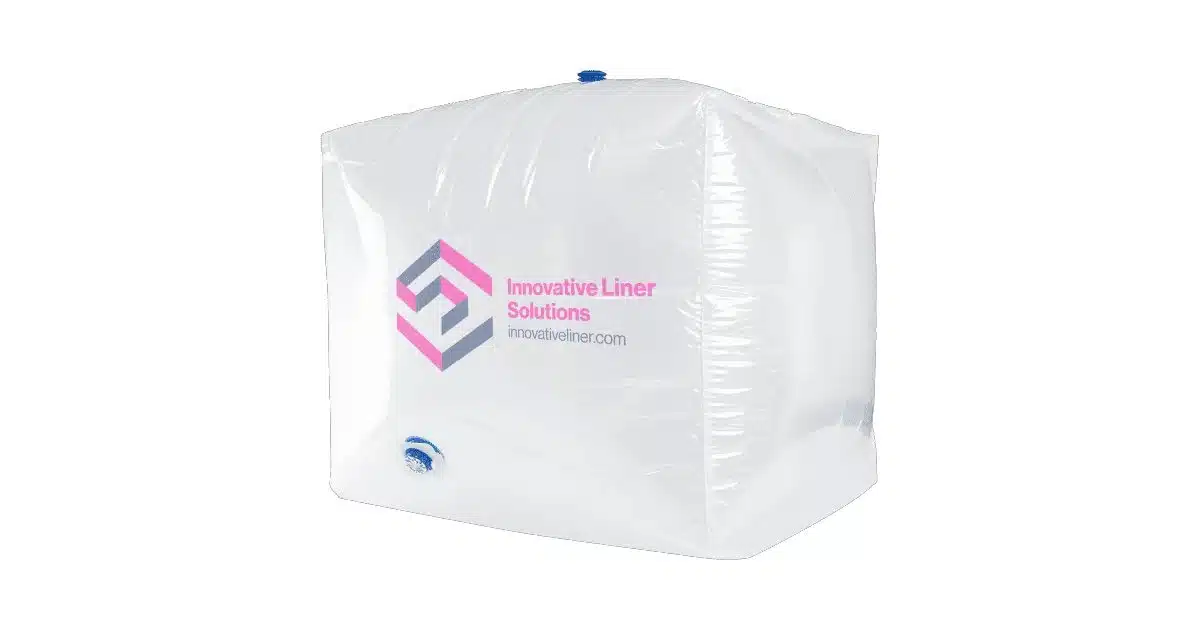In the world of bulk liquid packaging, container liners play a critical role in keeping products safe, clean, and ready for use. Among the many liner materials available, the polypropylene container liner stands out as one of the most versatile and reliable solutions. But what exactly is a polypropylene liner, and why is it so widely used across industries like food, chemicals, cosmetics, and automotive fluids? Understanding its features, benefits, and applications sheds light on why it has become a preferred choice for businesses handling large-scale liquid transport and storage.
Defining a polypropylene liner
A polypropylene liner is a specialized protective container liner made from polypropylene film, a type of plastic known for its durability, chemical resistance, and hygienic properties. When fitted inside an Intermediate Bulk Container (IBC), this liner creates a barrier between the container walls and the liquid product. This prevents contamination, protects against leaks, and ensures that the container can be reused without undergoing extensive cleaning.
Polypropylene is particularly valued because it is lightweight yet strong, resistant to many chemicals, and capable of maintaining product integrity even under demanding conditions. These characteristics make the liner a reliable choice for bulk liquid packaging components across multiple industries.
Why use polypropylene in liners
The choice of polypropylene as a liner material comes down to its unique combination of properties. It is non-reactive, which means it does not interact with the liquids it contains. It is also resistant to moisture and many solvents, making it suitable for both food-grade and industrial applications. Additionally, polypropylene liners are flexible, easy to install, and cost-effective over the long term, especially when compared to single-use packaging.
By using polypropylene liners, businesses reduce the risk of contamination while simplifying the process of reusing IBCs. Instead of cleaning the container extensively, operators can simply replace the liner and continue operations with minimal downtime.
Benefits for food applications
In food and beverage industries, maintaining hygiene is paramount. A polypropylene liner ensures that liquids like oils, juices, syrups, and sauces are stored and transported in a sterile environment. Because the liner prevents direct contact with container walls, there is no risk of flavor transfer, residue buildup, or exposure to potential contaminants. This not only preserves product quality but also helps companies comply with strict safety standards.
Benefits for chemical applications
In chemical transport, durability and resistance are essential. Polypropylene liners protect against corrosion, leaks, and reactions that can occur when aggressive liquids come into contact with container surfaces. Whether transporting lubricants, cleaning agents, or other industrial liquids, these liners provide an extra layer of safety. They also work in tandem with other IBC protective packaging supplies like IBC dunnage boards and IBC base pads to keep the container stable and secure during transit.
Choosing The Right Open Top Liners And Polypropylene Liners
When selecting the right liner, businesses often compare open top liners with polypropylene liners to determine the best fit for their specific needs. Open top liners make installation and removal easier, especially for viscous or hard-to-handle liquids. Polypropylene liners, on the other hand, provide strong chemical resistance and hygienic protection. Many businesses use them together depending on the liquid and operational requirements. To learn more about these options, see this resource on Choosing The Right Open Top Liners And Polypropylene Liners.
Supporting components that protect polypropylene liners
Polypropylene liners are most effective when paired with other IBC packaging materials. Dunnage boards distribute liquid weight evenly inside the container, reducing stress on the liner. IBC base pads cushion the bottom of the container, minimizing wear during handling and transportation. IBC top lids and IBC container lids provide a secure seal that prevents contaminants from entering from above. Together, these bulk liquid packaging components create a complete system that maximizes the performance and safety of polypropylene liners.
Applications across industries
The versatility of polypropylene liners makes them suitable for a wide range of industries:
-
Food and beverage: Oils, juices, syrups, and dairy-based liquids remain safe and uncontaminated.
-
Chemicals: Corrosive or hazardous materials are contained securely.
-
Cosmetics: Creams, gels, and liquid formulations are transported without losing quality.
-
Automotive: Coolants, lubricants, and antifreeze are kept clean and stable.
Each industry relies on liners to maintain product quality and safety while simplifying operations.
Sustainability advantages
Polypropylene liners also contribute to sustainability goals. By reducing the need for water- and energy-intensive cleaning processes, they help conserve resources. They also extend the life of IBCs by reducing wear on the container walls. This makes them a practical solution for companies seeking to balance operational efficiency with environmental responsibility.
Selecting the right packaging system
Choosing the best polypropylene liner requires consideration of liquid type, handling requirements, and regulatory standards. It is also important to select the right combination of accessories, such as lids, base pads, and dunnage boards, to ensure the entire system functions effectively. Businesses looking for detailed guidance on this process can review the Comprehensive Guide To IBC Packaging Materials And Components, which provides valuable insights into selecting the right setup for specific applications.
Why work with Innovative Liner Solutions
Innovative Liner Solutions provides a complete range of polypropylene container liner options, along with the supporting IBC protective packaging supplies needed to create a secure and efficient system. Their expertise ensures that companies across industries receive packaging solutions that align with their specific products, regulations, and operational needs. With a focus on safety, efficiency, and sustainability, Innovative Liner Solutions is a trusted partner for all bulk liquid packaging requirements.
Conclusion
A polypropylene liner is more than just a protective layer inside an IBC. It is a vital component that ensures liquids are transported and stored safely, cleanly, and efficiently. From food and beverage to chemicals and cosmetics, these liners provide the durability and reliability needed to handle diverse applications. When combined with accessories like dunnage boards, base pads, and top lids, they become part of a complete packaging solution that protects both the product and the container.
For expert guidance on polypropylene liners and related IBC packaging materials, contact Innovative Liner Solutions today at (815) 963-9525.


